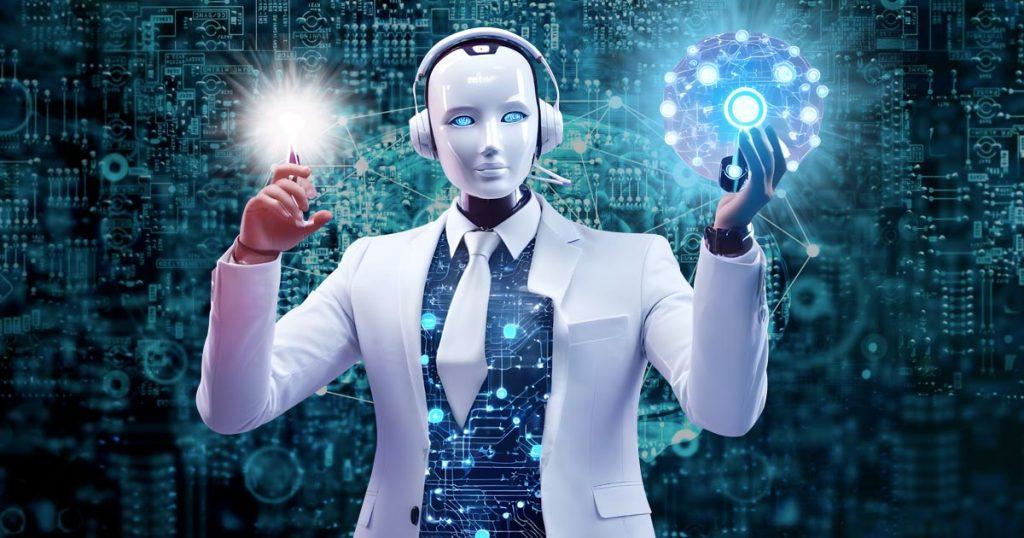Artificial intelligence (AI) is rapidly changing different industries and tackling tough challenges that were previously thought intractable. As technology advances, AI’s capabilities expand, providing creative solutions across different industries. Here are 15 significant problems AI can solve, showcasing its transformative potential.
1. Healthcare Diagnostics and Treatment
AI is transforming healthcare by improving diagnostic accuracy and treatment strategies. AI can scan medical photos using machine learning algorithms to uncover trends and diagnose diseases like cancer in their early stages.
For instance, AI-powered tools can examine X-rays, MRIs, and CT scans with greater precision than human doctors, leading to timely and accurate diagnoses. This exemplifies how AI is helping to solve problems around the world, specifically in the medical field.
2. Predictive Maintenance in Industries
Predictive maintenance uses AI to foresee equipment failures before they occur, minimizing downtime and reducing repair costs. By evaluating data from sensors and machinery, AI systems can forecast when a machine will break, allowing for preventive maintenance. This demonstrates AI solving problems in manufacturing, showcasing how AI problem-solving examples can lead to more efficient operations and cost savings.
3. Personalized Education
AI improves education by customizing learning experiences to each student’s specific needs. Adaptive learning systems use artificial intelligence (AI) to assess a student’s strengths and shortcomings before giving personalized content and recommendations. This allows pupils to learn at their own pace while improving overall educational performance. It’s a prime example of how AI is helping to solve problems around the world in education.
4. Fraud Detection
In the financial sector, AI is an effective tool for detecting and combating fraud. Machine learning algorithms evaluate transaction patterns and detect suspicious activity in real time. This helps financial institutions minimize losses and protect customers from fraudulent activities, illustrating AI solving problems in finance and offering effective artificial intelligence solving problems in fraud prevention.
5. Traffic Management
AI can help regulate traffic flow and alleviate congestion in cities. Smart traffic systems use artificial intelligence to evaluate traffic data, adjust signal timing, and offer commuters real-time updates. This leads to more efficient traffic flow, shorter travel times, and lower emissions. It highlights problems that can be solved with AI in urban planning and transportation management.
6. Natural Disaster Prediction and Response
AI is crucial in predicting natural disasters and improving response efforts. AI can better predict hurricanes, earthquakes, and floods by analyzing meteorological patterns and geological data. This enables timely evacuations and better resource allocation during emergencies, showcasing the problems AI can solve in disaster management and response.
7. Agricultural Optimization
AI is transforming agriculture by optimizing farming practices. AI-powered systems monitor soil conditions, weather patterns, and crop health to provide farmers with useful information. This helps in efficient resource utilization, higher crop yields, and sustainable farming.
8. Customer Service Enhancement
AI-powered chatbots and virtual assistants are enhancing customer support across a variety of businesses. These AI systems handle a large volume of inquiries, provide instant responses, and offer personalized assistance, leading to enhanced customer satisfaction. This confirms the ability of AI to solve problems in customer service and improve user experiences.
9. Climate Change Mitigation
AI plays an important role in combating climate change. By analyzing environmental data, AI can help monitor deforestation, predict climate patterns, and optimize energy consumption. This aids in developing strategies for reducing carbon footprints and promoting sustainability.
10. Supply Chain Optimization
AI improves supply chain operations by forecasting demand, managing inventories, and optimizing logistics. AI algorithms analyze market trends, consumer behavior, and other variables to ensure efficient supply chain management, reducing costs and improving delivery times. This showcases AI solving problems in logistics and supply chain management.
11. Language Translation
Artificial intelligence-powered language translation systems are breaking down language boundaries around the world. Advanced AI models can translate text and speech in real-time, allowing for seamless communication between languages. This is particularly beneficial for international business and travel, exemplifying how AI is helping to solve problems around the world in communication.
12. Energy Management
AI improves energy management by optimizing the utilization and distribution of energy resources. AI systems analyze consumption patterns and predict energy needs, helping utilities balance supply and demand. This leads to more efficient energy usage and reduced waste, showing what problems AI can solve in energy management and sustainability.
13. Autonomous Vehicles
AI is important to the development of self-driving cars, which have the potential to transform transportation. Self-driving cars employ artificial intelligence (AI) to drive, recognize barriers, and make real-time choices, lowering the chance of accidents and enhancing road safety. This highlights AI solving problems in transportation and mobility.
14. Drug Discovery
AI speeds up drug discovery by examining massive amounts of chemical components and biological interactions. AI algorithms can predict the efficacy of potential drugs, significantly shortening the time required for research and development and bringing life-saving medications to market faster. This supports artificial intelligence in solving problems in pharmaceuticals and healthcare.
15. Cybersecurity
AI improves cybersecurity by identifying and mitigating threats in real-time. AI systems can scan network data, detect strange activity, and respond to intrusions quickly. This contributes to the protection of sensitive information and the integrity of digital systems, demonstrating how AI may be used to solve cybersecurity issues.
AI Can Somehow Solve Some Problems
AI’s ability to solve complex problems is transforming industries and improving lives around the world. From healthcare and education to transportation and cybersecurity, AI is providing innovative solutions that were once unimaginable. As AI technology continues to advance, its potential to address even more challenges will only grow, making it an indispensable tool for the future.
By understanding what problems AI can solve and recognizing the impact of AI solving problems in various sectors, we can better appreciate the transformative power of artificial intelligence. Whether it’s through personalized education, fraud detection, or climate change mitigation, AI is indeed a powerful ally in solving the world’s most pressing problems.
